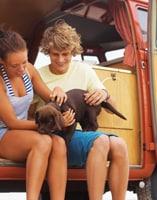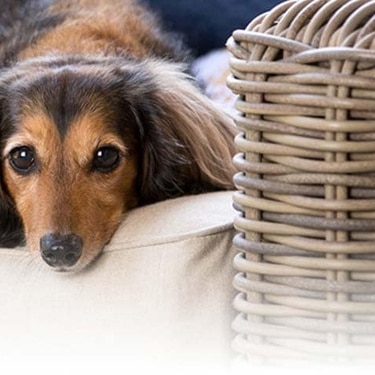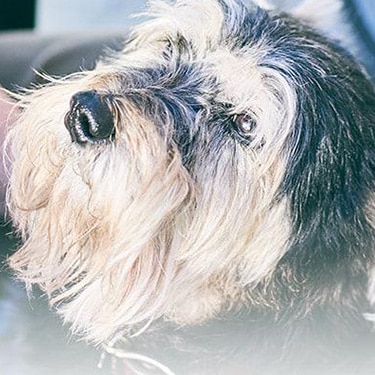
-
Find the right food for your petTake this quiz to see which food may be the best for your furry friend.Find the right food for your petTake this quiz to see which food may be the best for your furry friend.Health CategoryFeatured products
 Puppy Sensitive Stomach & Skin Salmon & Vegetable Stew
Puppy Sensitive Stomach & Skin Salmon & Vegetable StewGentle on stomachs while nourishing skin & supporting development in growing puppies
Shop Now Adult 6+ Large Breed Chicken Meal, Barley & Rice Recipe Dog Food
Adult 6+ Large Breed Chicken Meal, Barley & Rice Recipe Dog FoodSupports energy level, joint health, and beautiful coat in large breed mature dogs
Shop Now Adult Perfect Weight & Joint Support Chicken & Brown Rice Recipe Dog Food
Adult Perfect Weight & Joint Support Chicken & Brown Rice Recipe Dog FoodThis weight management and mobility support dog food was created with Hill’s unique understanding of the biology of overweight dogs.
Shop Now -
DogCat
- Cat Tips & Articles
-
Health Category
- Weight
- Skin & Food Sensitivities
- Urinary
- Digestive
- Kidney
- Dental
- Serious Illness
-
Life Stage
- Kitten Nutrition
- Adult Nutrition
Featured articles Water
WaterWater is the most important nutrient of all and essential for life. Animals can lose almost all their fat and half their protein and still survive, but if they lose 15% of their water, it will mean death.
Read More The Right Diet For Your Pet
The Right Diet For Your PetLearn what to look for in healthy pet food & nutrition, including ingredients, quality of the manufacturer, your pet's age, and any special needs they have.
Read More Pet Food Storage Tips
Pet Food Storage TipsWhere you store your cat and dog food can make a big difference in the quality and freshness once it is opened. Here are some common questions and recommendations for optimal storage for all of Hill’s dry and canned cat and dog food.
Read More -


Transporting your puppy
 As a well-behaved member of your family, you may find that your puppy is invited to attend family gatherings or to join a barbecue at the neighbor's house. If you plan on taking your puppy with you when you leave the house, it is important that you provide a safe and comfortable way to transport him.
As a well-behaved member of your family, you may find that your puppy is invited to attend family gatherings or to join a barbecue at the neighbor's house. If you plan on taking your puppy with you when you leave the house, it is important that you provide a safe and comfortable way to transport him.
Dog crates are the safest and most comfortable way to take your puppy along for the ride. Before purchasing a carrier or crate, talk with your veterinarian to ensure the size is appropriate for your pet. If your puppy will grow to 55 pounds or more, you may need a smaller crate for the first few months and then transition to a larger crate as your puppy grows.
Traveling with your puppy
These days, there are many opportunities to take your puppy with you on fun adventures. In fact, many hotels and resorts make a point of letting you know that both you and your pet are welcome.
It almost goes without saying, but whether you intend to take your puppy on a trip near home or away, you should ensure he has the correct vaccinations before traveling, and that they're up to date. If you're in any doubt, consult your vet.
Be prepared
It's essential that your puppy is fit and healthy before he travels. However, during long trips dogs can become sick and show signs of stress. If your dog doesn't travel well ask your veterinarian about travel sickness remedies or something to help calm your dog. You should also ask your vet to recommend any veterinary clinics in the area where you are traveling, ,should the need arise. You can also find this information by searching HillsPet for nearby veterinarians.


Tasty Tips
Just before you leave
Your puppy should be fed well in advance of any travel. If this isn't possible, you may like to consider putting off feeding time until you arrive at your destination.
Check that you have your puppy's favorite Hill's puppy food, water, puppy treats, toys and the proper paperwork for your puppy, if required, and always ensure that he's wearing a collar and identification tag.
In the car
Your puppy should always be transported in complete safety, preferably in a crate designed for this purpose, in which your pet should be able to stand up and turn around, and sit and lie down comfortably. If it's not possible to put your puppy in a crate, he should be securely placed in the back of the car in a special dog seatbelt or harness.
Stopping for a rest
If you're going on a long journey, take a break; stop the car and let your puppy have a drink of water and a little exercise.
If you're making a short stop, for a meal or a bathroom break, never leave your pet unattended in the car. It doesn't matter what the weather is outside; this is not a habit to get into. You may think that your car is in the shade and may have left the window partly open, but the sun's position changes throughout the day. Your car may have been in the shade an hour ago, but could be in the full glare of the hot sun by the time you return.
Related products

Advanced nutrition shown to support joint health and improve mobility

Supports energy level, joint health, and beautiful coat in large breed mature dogs

Gentle on stomachs while nourishing skin & supporting development in growing puppies

This weight management and mobility support dog food was created with Hill’s unique understanding of the biology of overweight dogs.
Related articles

Selecting the right food for your puppy is a key to quality nutrition and a long, healthy life., Learn more about how to select the right puppy food.

A dog with a sensitive stomach has special needs. Learn more about sensitive stomach symptoms in your dog, what you can do to help sooth your pet’s insides and get recommendations on sensitive stomach dog food.

Though it may seem like your four-legged friend loves nothing more than to nap on the couch, dogs need regular exercise to stay healthy just like people do.

Learn what you can feed your pregnant or nursing dog to keep her and her new pups healthy.

Put your dog on a diet without them knowing
Our low calorie formula helps you control your dog's weight. It's packed with high-quality protein for building lean muscles, and made with purposeful ingredients for a flavorful, nutritious meal. Clinically proven antioxidants, Vitamin C+E, help promote a healthy immune system.
Put your dog on a diet without them knowing
Our low calorie formula helps you control your dog's weight. It's packed with high-quality protein for building lean muscles, and made with purposeful ingredients for a flavorful, nutritious meal. Clinically proven antioxidants, Vitamin C+E, help promote a healthy immune system.





